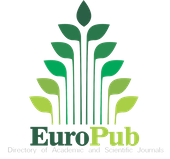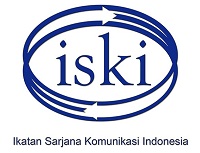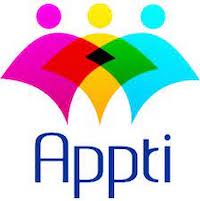Voter Attitudes toward Hoax Information Sources At the 2019 Presidential Election in West Sumatra
Abstract
Keywords
Full Text:
PDFReferences
Ashley, Seth., Maksl, Adam., and Craft, Stephanie. (2017). News Media Literacy and Political
Engagement: What’s the Connection? Journal of Media Literacy Education 9 (1), 79 –98.
Blair, Ann M. (2011). Too Much to Know: Managing Scholarly Information before the Modern
Age. New Haven. Yale University Press.
Cangara, Hafie. (2009). Komunikasi Politik: Konsep, Teori dan Strategi. Rajawali Pers. Jakarta.
Creswell, John W. (2010). RESEARCH DESIGN Edisi ke-3 Pendekatan Kualitatif Kuantitatif
dan Mixed. Yogyakarta. Pustaka Pelajar.
Denzin, Norman. K, and Lincoln, Yvonna. S. (2017). The SAGE Handbook of Qualitative
Research. SAGE Publication. United States.
Dimitrova, Daniela V., Shehata, Adam., Stromback, Jasper and Nord, Lars. (2014). The Effects
of Digital Media on Political Knowledge and Participation in Election Campaigns: Evidence From Panel Data. Communication Research 2014, Vol 41(1) 95–118. SAGE Publication.
Fauzi, Agus Machfud. (2019). Perilaku Pemilih Menjelang Pemilu 2019. Journal of Islamic
Civilization. Vol 1., No. 1, Maret 2019. Universitas Negeri Surabaya.
Hartono. (2016). Metodologi Penelitian. Zanafa. Pekanbaru
Heryanto, Gun Gun. (2019). Literasi Politik: Dinamika Konsolidasi Demokrasi Indonesia
Pascareformasi. IRCiSoD. Yogyakarta.
Heryanto, Gun Gun, dkk. (2019). Panggung Komunikasi Politik: dilema antara Idealitas dan
Realitas Politik. IRCiSoD. Yogyakarta.
Kazakov, Alexander. (2017). Political Aspect of Media Literacy. International Journal of Media
and Information Literacy, 2017, 2(2). Slovak Republic
Kovach, Bill and Rosenstiel, Tom. (2011). The Elements of Journalism. Three Rivers Press. New York.
Law Act Number 8 of 2012 concerning General Election.
liputan6.com.(2019).https://www.liputan6.com/news/read/3901113/dewan-pers-minta-masyarakat-tidak-merujuk-media-abal-abal. 22 Februari 2019. Accesed on 15 April 2020.
Mahmudah, Dede. (2016).Pengetahuan dan Pendapat Pemilih Pemula Terhadap Akses Informasi
Publik. Jurnal Studi Komunikasi Dan Media, Vol. 20 No. 2 (Juli – Desember 2016) Hal : 241 – 257.
Maksl, Adam., Ashley, Seth., and Craft, Stephanie. (2015). Measuring News Media
Literacy. Journal of Media Literacy Education 6(3), 29 – 45. www.jmle.org.
https://files.eric.ed.gov/fulltext/EJ1059962.pdf. Accessed on 15 April 2020.
Morissan. (2012). Metode Penelitian Survei. Kencana. Jakarta.
Moleong, Lexy J. (2006). Metodologi Penelitian Kualitatif. PT Remaja Rosdakarya.
Bandung.
Nasrullah, Rulli. (2016). Teori dan Riset Media Siber (CYBERMEDIA). Prenada Media Group.
Jakarta.
news.detik.com.https://news.detik.com/berita/d-4546319/rekap-suara-di-sumbar-prabowo-
-jokowi-1405. Accessed on 10 April 2020.
news.detik.com.news.detik.com/berita/d-4264513/kemenkominfo-ada-1000-berita-hoax-selama-
masa-kampanye-pemilu.19/10/2018. Accessed on 10 April 2020.
Putri, Nora Eka. (2017). Dampak Literasi Politik Terhadap Partisipasi Pemilih dalam Pemilu.
Jurnal Agregasi. Vol. 5, No. 1, 2017. Jurnal Prodi Ilmu Pemerintahan, FISIP UNIKOM. Bandung.
Silverblatt, Art. (2018). Media Literacy and Critical Thinking. International Journal of Media and
Information Literacy. Vol. 3, No. 2. Slovak Republic.
Sugiyono. (2013). Metode Kuantitatif Kualitatif dan R&D. Alfabeta. Bandung
Riaz, Saqib. (2014). Effects of New Media Technologies on Political Communication. Journal of
Political Studies, Vol. 1, Issue 2, 161-173.
Potter, W James. (2013). Media Literacy. SAGE Publications. United States.
Tamburaka, Apriadi. (2013). Literasi Media Cerdas Bermedia Khalayak Media Massa. Raja
Grafindo Persada: Jakarta.
Van Dijck, Jose. (2013). The Culture of Connectivity: A Critical History of Social Media. Oxford University Press. Oxford.
Ward, Ian and Cahill, James. (2004). Old and New Media: Blogs in The Third Age of Political Communication. The University of Queensland. Australia.
DOI: https://doi.org/10.29313/mediator.v13i1.6003
Refbacks
- There are currently no refbacks.

This work is licensed under a Creative Commons Attribution 4.0 International License























